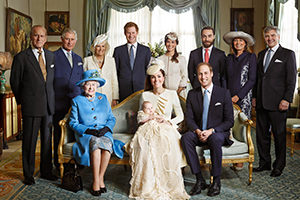There are tricks for a foreigner to sound like a native speaker. You may take English classes and even earn a tefl certification online.
Two important ones I learned while in Tarrytown concern the letters T and R. When in the middle of a word, a T must be softened to a D (“sweetie”), or ignored entirely (“center”). As for the letter R, it is not to be pronounced with the throat (as in French) or the tongue (as in Spanish), but through a tricky association of tongue and mouth that effectively results in a tiny roar.
Once I had mastered these two principles, the question “Where are you from?” became more rare (it still popped up whenever I had to say ‘murder’ or ‘horror’, but really, that’s more Rs than anyone can take). I was in. I was part of the club.
So imagine my puzzlement when, after almost ten years of fake Ts and baby roars, the supermarket lady in West London doesn’t understand my simple request for mineral water.
“I’m sorry, I didn’t get that.
-Wader. You know, in boddles.
-…”
An all-too familiar feeling of embarrassment creeps up. I’m not sure what it is I mispronounced, but I am suddenly very aware of the presence of my friends behind me. One of them comes to help.
“We’re looking for wotah, please.
-Oh sure, third aisle on the left.”
Oh, you’re kidding.
I know that the Brits don’t sound the same, but I never thought they would have trouble understanding me. Their TV is not dubbed; they must hear the American accent every day.
And so they do. The Americanized-French accent, on the other hand, not so much.
So what am I supposed to do- consciously change my accent? Think before I speak and modify words before they leave my mouth? No. That would make me a wanna-be. And I like my baby roar, darn it. It’s my pedigree. If it’s my Ts and my Rs that are at fault, I’ll just avoid saying them. There. Sorted!
It soon becomes evident, however, that the range of my English vocabulary is not broad enough for this plan to function. My search for alternative words results in the sort of stammering you can only expect from an exchange student fresh off the plane. An exchange student fresh off the plane and having a seizure.
To make matters worse, my first internship in England requires me to operate a switchboard…at the Bush Theatre.
“Good morning, Bush Theadre.
-Huh…hello? Is this the Bush Theatre?”
As it happens, I am not the only one in the office having pronunciation problems. Simone, the California-born marketing intern, has trouble dealing with her own baby roar and fake Ts when answering the phone.
“People can immediately tell I’m not English, it’s annoying. But if I pronounce things the English way I just sound weird. I’m American, so I’ll sound American.”
Exactly! Why should I change the way I speak when I am…not…American…?
Oh God. I already am a wanna-be.
Ok then. I take a deep breath, forego self-consciousness and say it: THE-A-TAH. And it works. Sure, I have to think before I speak, but people understand me. Maybe I should start replacing my ‘cain’t’ with ‘con’t’, too…
Months later, as I sit talking to my British housemate over dinner, I feel like part of the club again. I reminisce over my internship with a speech full of English inflections.
“You know what’s best about your old job at the Bush?, asks my housemate.
-No, what’s that?
-The funny way you pronounce ‘theatre’.”
Oh, you’re kidding.
I have stopped thinking before I speak, in case you’re wondering. What comes out, comes out. My Americanisms are back…only my Ts have this tendency to stay stiff, and my baby roar is not as mighty as it used to be.
Maybe I should just start my own club.



